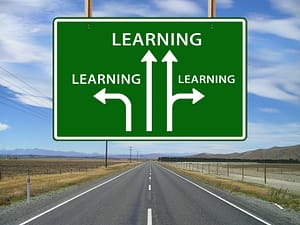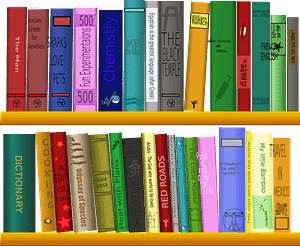Unlearning to Learn and Its Relation to Memory Retention
What is unlearning to learn all about? Unlearning obsolete information and habits is just as crucial as learning new ones in today’s quickly changing world, Known as “unlearning to learn,” this idea is essential to continuing to be creative and flexible. This post will walk you through the process of unlearning to learn and offer pointers for efficient information retention.
The Value of Not Learning
Comprehending Unlearning to Learn
 Unlearning to Learn is the process of letting go of outmoded ideas or knowledge to make place for more current understanding. It necessitates questioning deeply rooted notions and routines and substituting them with fresh ones.
Unlearning to Learn is the process of letting go of outmoded ideas or knowledge to make place for more current understanding. It necessitates questioning deeply rooted notions and routines and substituting them with fresh ones.
‘The intentional practice of questioning deeply held convictions and presumptions to create room for fresh viewpoints and ideas.‘ That is an accurate definition of unlearning to learn. It necessitates being open to changing one’s perspective of the world and being willing to challenge deeply held beliefs. This idea goes beyond conventional education because it necessitates a deliberate effort to demolish preconceived conceptions. Such preconceived conceptions could impede one’s ability to advance personally or professionally.
People can accept new ideas and perspectives by unlearning, which eventually results in intellectual and emotional development. It is realizing that information is dynamic and ever-changing, necessitating constant adjustment and improvement. Accepting unlearning as a necessary component of the learning process is core to the theory. It enables people to develop an innovative, curious, and critical thinking mindset. This creates an atmosphere free from the limitations of antiquated concepts.
The Significance of Unlearning to Learn
Holding onto out-of-date information can impede development and adaptability in a time when knowledge and trends are ever-evolving. We can remain flexible and receptive to absorbing new knowledge via unlearning.
Many features of our quickly changing society need to be unlearned by its members. This adjustment is necessary in order for them to adjust to the evolving levels of the global environment. A common example include digital fingerprints which are getting harder and harder to remove. People need to relearn the conventional ideas of security and privacy while technology advances at an unprecedented rate. There has to be a mental shift about online presence and personal information protection. The increasing use of social media and data sharing necessitate this new awareness.
Here are three societal examples that may require Unlearning to Learn
Americans need to unlearn the notion that a binary, two-party system is the only one that influences political debate. And the related learning to take place In order to promote healthy democratic engagement? It is imperative to embrace varied ideas and maintain an open mind toward alternative ideologies.
Furthermore, as globalization necessitates a more integrated approach to international relations, the current world order is being challenged. There are rising world powers challenging established conceptions of hierarchy and power dynamics and global order.
Finally, since the state of the economy is always changing, people need to get over the notion that success is solely determined by material possessions. Natural resource preservation and sustainable economic growth can result from placing a strong emphasis on sustainability and responsible consumption.
Three Steps in Unlearning to Learn
1. Determine What Has to Be Forgotten

Determining what we still need to unlearn is an essential first step toward critical thinking and personal development. Analyzing our actions and beliefs in the context of recent events and new knowledge is one method to do this. We should consider whether our beliefs are consistent with the realities of the modern world and whether they are founded on skewed or out-of-date information. Furthermore, pursuing varied viewpoints via education or cultural immersion might assist us in recognizing any deeply embedded prejudices or misunderstandings that require dispelling.
Keeping an eye out for instances where our preconceived notions or past experiences have misled us is another way to determine what we still need to unlearn. When we come into circumstances where our preconceived conceptions have led to incorrect assessments or misinterpretations, it could indicate that there are ingrained habits or beliefs that need to be reexamined. By continuing to be introspective and open-minded, we can begin to see the domains in which unlearning is essential for both individual growth and larger society advancement.
2. Examine Your Thoughts
After determining what has to be unlearned, confront these attitudes or routines. Consider your reasons for holding these views and if they are still useful or valid.
A vital component of personal development is confronting one’s beliefs. Talking openly and tolerantly with those who disagree with you is one approach to achieve this. This can offer new insights and encourage reflection on the reliability of one’s own views. Another strategy is to carry out in-depth research on subjects that contradict popular opinion in order to facilitate deliberate and well-informed reflection.
Furthermore, deliberately searching out sources of knowledge that defy accepted views can be a useful strategy for doing so. People can develop a more complex view of the world around them and increase their intellectual flexibility and adaptability by exposing themselves to a variety of ideas and opinions. In the end, accepting the discomfort that comes with reevaluating strongly held convictions can result in significant personal development and a more expansive perspective.
3. Swap Outdated Information

There are many recent examples of previously held ‘norms’ have changed. During the last two decades, there has been a significant shift in our comprehension of nutrition and dietary recommendations, making numerous ingrained notions obsolete. For example, numerous studies demonstrating the health advantages of healthy fats such as those found in avocados and almonds have refuted the long generally held belief that all fats are fundamentally unhealthy. Similarly, studies suggesting that intermittent fasting may be more advantageous for managing weight and general health have cast doubt on the notion that frequent eating increases metabolism. This change in knowledge underscores how scientific understanding is dynamic and how important it is to continuously reassess our views in light of new information.
Furthermore, some abilities that were once thought to be necessary have become obsolete due to technological improvements. The fast changing sectors of automation and artificial intelligence have forced traditional ideas of career trajectories and job security to change. One good illustration is the trend toward less use of manual bookkeeping as more companies adopt digital accounting software. The shift from manual labor to automation also highlights how quickly things can change and create intricate cause-and-effect interactions that were not entirely expected even twenty years ago. It also raises concerns about economic inequality and the influence on society as a whole.
How to Acquire Knowledge after You Unlearn to Learn
1. Adopt a Growth Perspective
Having a growth attitude is essential for learning effectively. This way of thinking sees problems as chances for development and learning rather than as barriers.
Taking advantage of learning and development opportunities is a key component of adopting a growth mindset. People with a growth mentality, for example, decide to view obstacles or challenges as chances for personal development rather than as barriers. They eagerly seek out criticism, seeing it as helpful feedback that will help them grow and succeed. Adopting a growth mindset also entails accepting the idea that aptitude and intelligence may be enhanced by commitment and diligence. This method motivates people to keep going in the face of difficulties because they understand that mastery comes from effort.
Appreciating the process over the final product is another way to adopt a growth mentality. A growth mindset concentrates on the process of improving rather than on success or failure as definitive results. In order to advance, one must frequently take chances, make errors, and grow from past experiences—all of which are necessary for personal growth. They also realize that they have flexible potential that allows for ongoing development and progress rather than being fixed. They develop resilience in the face of adversity and preserve an optimistic view of the future by adopting this viewpoint.
2. Interactive Education

Adults who want to learn actively should participate in practical exercises, role-playing, and real-world problem-solving. The application of case studies in professional contexts, where adults assess complicated circumstances and suggest solutions based on their expertise, is one example of this. Role-playing games are another useful technique that lets individuals adopt new viewpoints and adjust to novel situations in a safe setting.
Furthermore, project-based learning is advantageous for adult learners since it involves teamwork on extended assignments that call for flexibility and readiness for unforeseen circumstances. Using this method, they can hone their teamwork skills and apply their knowledge in real-world situations. All things considered, adult active learning techniques promote ongoing skill improvement and preparedness to handle a variety of work-related scenarios with assurance and proficiency.
Our Dynamic World

Adults can also use their knowledge in practical contexts by actively searching out possibilities for hands-on experiences, such as volunteering or participating in community projects. This helps them learn new material and improves their capacity to deal with the challenges of a society that is changing quickly. Last but not least, adults who consistently practice mindfulness and self-reflection can be better equipped to deal with the upheavals in society and make meaningful contributions to their communities while being ready for whatever the future may bring.
3. Ongoing Practice
Learning involves practice just like any other ability. To solidify your newfound knowledge and abilities, go over and use what you’ve learnt on a regular basis.
Strategies for Retaining Knowledge
1. Intermittent Repetition
The process of spaced repetition entails going over material at progressively longer intervals. It has been shown that this method improves long-term retention.
It is beneficial to reinforce your understanding and memorization of the topic by teaching others what you have learnt. Finding any knowledge gaps is also helpful.
3. Use What You Know
Applying new knowledge practically is one of the best methods to remember it. Applying what you’ve learnt to actual scenarios will help you recognize the importance of your newly acquired information and abilities.
In Summary of Unlearning to Learn
Unlearning to learn is a useful ability in the fast-paced, constantly-changing world of today. You may maintain your adaptability and creativity by purposefully unlearning old or inaccurate information. Then just as purposefully replace it with fresh, pertinent information. Additionally, you may make sure that your newly acquired knowledge stays with you over time. You can do so by using efficient learning and knowledge retention strategies. Recall that lifelong learning is a journey, and often the most crucial part of that journey is unlearning.
Check out this related article from Emeritus.org : Learning to Unlearn: The Importance of Unlearning and How to Use It
Go to our section on Brain Health to see more articles like this one.
Visit our Etsy Store, BeBestuWellnessDepot , for a wide range of supportive literature on all of our BeBestu.com topics!

